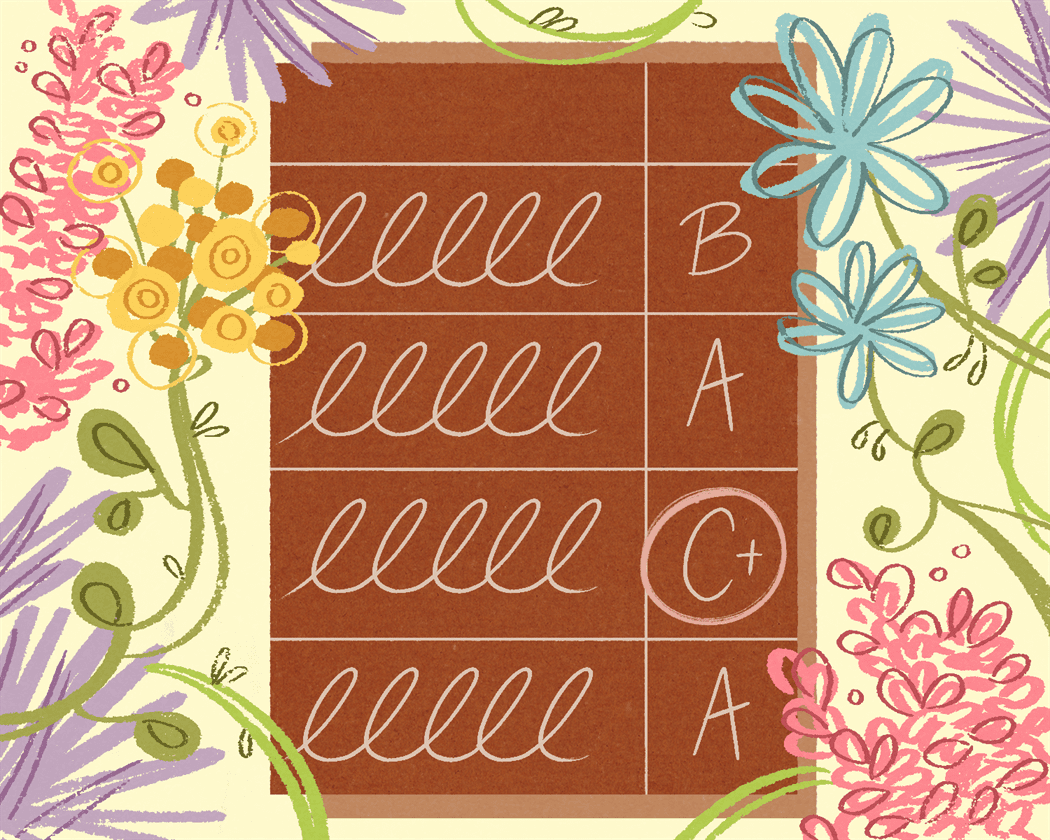About one year ago, the coronavirus (COVID-19) pandemic stopped Montclair State University dead in its tracks. Residents were sent home, all courses were reformatted to digital platforms and the future was left uncertain.
Now, one year later, the future is bright again. Vaccines are widely accessible to students, faculty and staff, including at sites on campus, and a return to normalcy is anticipated for the upcoming fall 2021 semester.
However, there have been many bumps along the way, and the student body has endured and suffered far more than it should have.
With that, here is the Montclair State report card for the spring 2021 semester.
Reading Comprehension
In our fall 2020 Montclair State report card, university administration received a B+ for “Promotes Positive Learning Environment,” as Counseling and Psychological Services (CAPS) was well adapted to various formats in response to the pandemic.
In December, a Montclair State freshman was found dead in her Dinallo Heights dorm room. After a campus-wide email from the vice president of student development and campus life informing the student body, more emails followed about the importance of mental health. These included the Healthy Minds Study, a mental health survey used to collect data on the well-being of students in order to implement the necessary procedures thereafter.
Four months later, nothing has changed. CAPS is still underfunded and understaffed. There has been no further information or actions relating to the supposedly crucial Healthy Minds Study and the mental health of the student body continues to be an afterthought of administrators.
When confronted about these failings in an editorial on the importance to bring them to an end, administrators responded by claiming CAPS resources were not inadequate. According to students, however, it is still difficult to get an appointment with CAPS, especially in a group session, and limits on session amounts continue to stand in the way of long-term improvement.
Grade: F
Listening Skills
At the beginning of the pandemic, an email was sent out to campus residents threatening to send them home, shaming their perceived abandonment of diligence in following safety protocols and imposing severe restrictions.
Then, in the middle of the spring semester, COVID-19 case rates spiked on campus. Residential students were blamed for it and then punished with more restrictions.
Meanwhile, hundreds of visitors continued to tour campus with the only precautionary measure being the Hawk Check survey: a fruitless, honor-based system lacking in accountability. The university also welcomed spectators to spring sporting events with the same ineffectual screening process.
To celebrate Vice President of Student Development and Campus Life, Dr. Karen Pennington’s, career and retirement, a parade was held involving administrators, faculty, staff and other university organizations.
Dr. Pennington’s legacy certainly deserves celebration, as well as President Susan Cole’s. But the fact remains that the COVID-19 pandemic is ongoing and sacrifices must be made by everyone, no matter their role at the university.
Grade: F
Promotes a Positive Learning Environment
As the fall semester winded down, the anticipated academic calendar for the spring semester was announced. An extension was given to winter recess up until the second week of February and courses would be in session until May 21. Spring break was eliminated.
Spring break serves a vital purpose to the student body. Often thought of as a week of partying, the vast majority of students use spring break to focus on schoolwork, pick up extra shifts at their job or relax and enjoy a mental reset.
It is understood the removal of spring break was enacted to curb the risk of a possible COVID-19 outbreak on campus with students returning after the holidays; but students were still held responsible for an entire semester’s worth of coursework.
Some professors recognized their students’ fatigue and canceled a class meeting, but not all students were so fortunate. An action from the university itself declaring a temporary break from classes to serve as a mental health day would have been more significant.
Additionally, administrators have worked all semester long to prepare the university for a regular fall semester. Students will be required to get vaccinated before returning in August and vaccinations are available on campus. After an incredibly difficult and draining year of the COVID-19 pandemic, The Montclarion applauds its university for establishing a path to normalcy in the near future.
While this spring semester has exposed many shortcomings, this return to pre-pandemic college life optimistically brings students back to a more fulfilling academic and social experience.
Grade: C+
This is President Cole’s last semester as university president and the student body awaits an announcement of a new president this summer. Dr. Karen Pennington retired from her position in April and welcomed Dr. Dawn Meza Soufleris as her successor.
The Montclarion sincerely appreciates the endless contributions Cole and Pennington have made to this university and wishes them the best of luck in their retirement. As their successors assume their positions, we demand prompt and effective improvement in all lacking areas.



